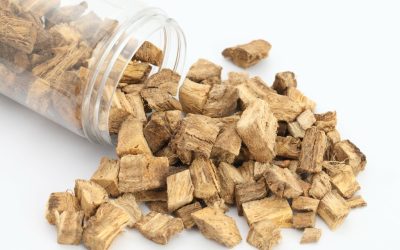Content
Life becomes an adventure of new experiences every day instead of the endless, repetitive cycle of using drugs that consumed our every waking thought before. If you’re just starting out on this recovery journey, that may seem like an unattainable goal. You may feel like recovery https://www.healthworkscollective.com/how-choose-sober-house-tips-to-focus-on/ means a monastic existence, but let us assure you — it’s anything but. To have the best chance for effectively recovering from addiction or substance abuse and remaining sober long-term, individuals should look for drug-free, stable housing that will support their recovery.

Just as making healthy food choices is important, individuals in recovery also need to learn how to create a meal plan, shop for groceries, and prepare their own meals. Eudaimonia sober living houses require that residents purchase their own groceries and prepare their own meals, which gives them time to practice this skill and develop a system that works best for them. Living with other men or women in recovery also provides an opportunity to make a meal plan, shop, and cook with a friend instead of facing it all on your own for the first time. Ultimately, safe and healthy living environments are needed and important for people in recovery. As recovery is unique to each individual, a range of housing options that support recovery and are both available and affordable is paramount. Giving back to others is an important part of restructuring your life in recovery.
Accepting Personal Responsibility
People in recovery from a substance use disorder frequently have problems meeting work-related responsibilities, maintaining employment, and managing money. If you were active in your addiction for a period of time, you may have developed financial problems. A structured routine will help you achieve other goals in your life, whether they are short-term (like being on time for work) or long-term (like going back to school and changing careers). Some definitions of sobriety call for complete lifelong abstinence while others focus on developing coping mechanisms that can reduce harm with the understanding that setbacks are common. However, the word is often used in different ways in different contexts.
Someone in recovery should figure out which coping mechanisms work for them. The coping mechanisms could be as simple as taking a time to participate in deep breathing or removing oneself from the situation to go for a walk outside. If these emotions become excessive, they can hold you back from recovery. If you are trying to maintain a sober lifestyle, those feelings can become toxic and contribute to relapse if you don’t deal with them properly. You may also experience what is commonly called sobriety fatigue, which refers to the overall exhaustion that may occur as a result of the emotional and physical stress of staying sober.
Living in Recovery
Try a meditative yoga class or go for regular walks to get some sunshine and fresh air. This group of people with lived experience advises the NIH HEAL Initiative on research directions and ensures that research takes into consideration input from people and communities the initiative aims to benefit. Shame is having negative beliefs about yourself and your self-worth. People in recovery can experience a lot of shame simply for having become addicted in the first place. Consider reaching out to a vocational rehabilitation counselor or career coach to help you update your resume, practice job interview skills, and locate jobs that match your skills and experience.
When they do, add them to your list of things that need to be done in order to accomplish your goal. Again, it isn’t important at this point that you have the answers – just put down the questions. How much different you have yet to fully comprehend, and that may be part of the problem.
How Do You Become Sober?
A great way to increase happiness and positivity is through volunteering. Not only will you wind up improving your self-confidence, you can also bring a sense of meaning and purpose back to your life and others. Start an Exercise Routine
Working out on a regular basis can help to restore your brain’s balance of “feel good” endorphins known as dopamine. Not to mention, exercise can help curb cravings, reduce stress, and improve energy levels. The key to getting into the flow of an exercise routine is to find activities you enjoy.
- So, while you don’t know how and what will change in recovery, you must first accept that it will change.
- Some of us want to pick up where we left off and finish the degrees we may have long ago abandoned; others of us may want to learn something new that adds a new dimension to our lives.
- Life skills are incredibly important to develop after addiction treatment.
- While residents aren’t required to have completed a rehab program before entry, many of them have.
Nestled in the San Juan Mountains of Montrose, Colorado is a protected, peaceful place to leave behind “bad influences” . The people, places, and thoughts that hold someone back from truly becoming the man God intended them to be. «Nobody recovered from addiction dead. My feeling is if we can keep people alive long enough, we know eventually the majority get recovery,» he said. It would also How to Choose a Sober House: Tips to Focus on be helpful if the house were near your work or school, a grocery store, public transit, a laundromat, and a healthcare provider. While chasing any type of high (natural or drug-induced) can be dangerous, if you keep balance in mind, there are many natural highs that can support a life in recovery. Figuring out how to identify one’s emotions and interpret them is a difficult thing to achieve.

